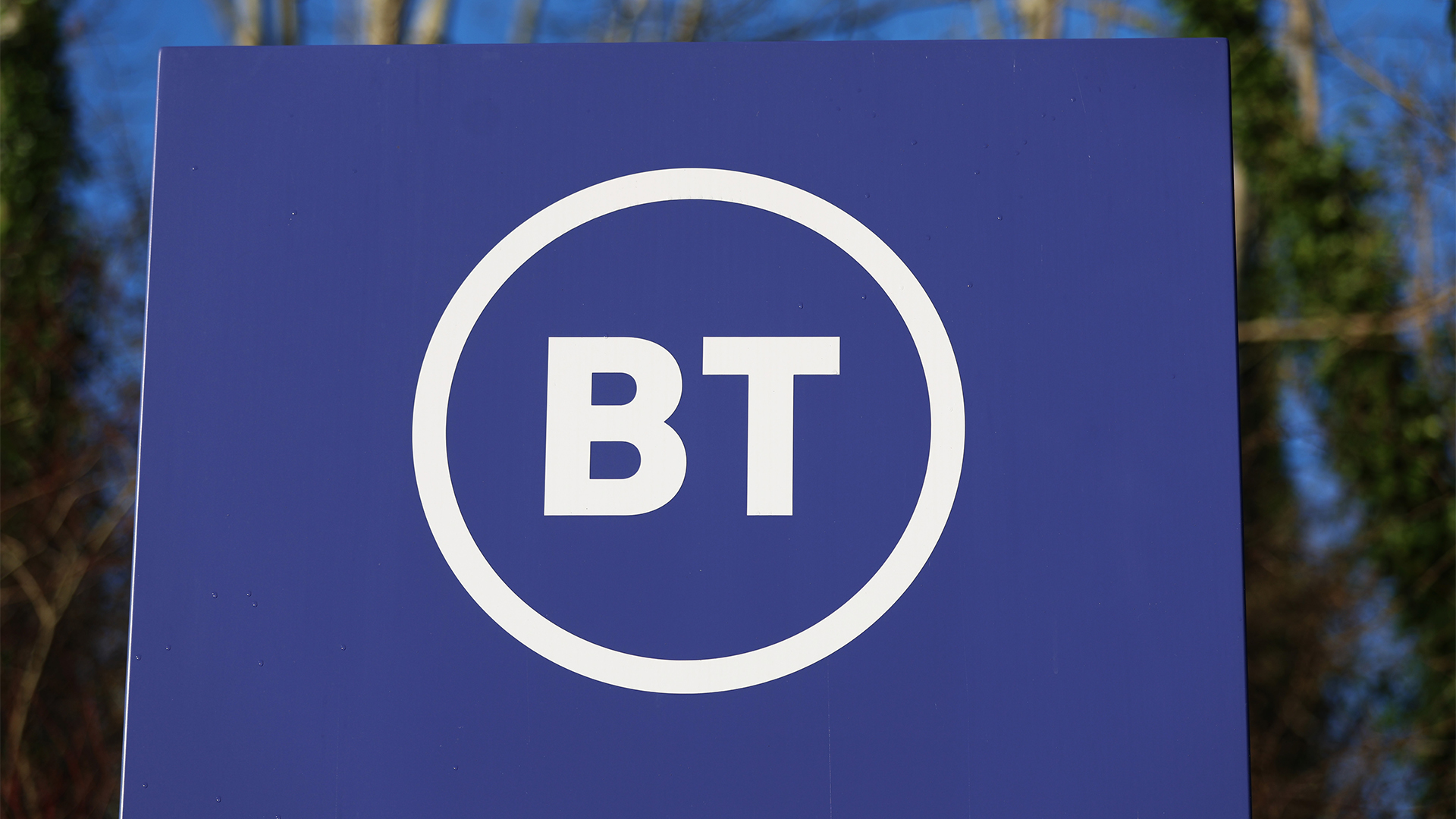BT’s 12-month rollercoaster ride
Roll up, roll up, come and see the fairground attraction of highs and lows that is the past year of telecoms giant BT. Where will the company go from here?


BT has had an interesting year. From groundbreaking and exciting investment to jaw-dropping job cuts and financial losses, it was a technology soap opera for the world to watch unfold.
We look at what BT has faced, both triumphantly and less successfully, where it stands now and what the future holds for this well-known business and household name.
The rise of broadband
BT has staked its claim in one of the hottest areas of the telecoms world: high speed broadband networks.
The company announced last summer that it would be investing 1.5 billion into building a national fibre-optic network with claims it could connect up to ten million homes to high speed broadband in time for the Olympic Games in 2012.
In October, it announced the first pilot sites for the speedy internet connections, one in the North London suburb of Muswell Hill and another in the Welsh town of Whitchurch. It promised initial speeds of up to 40Mbps for 30,000 people in these areas. BT claimed that it could rise to up to 60Mbps in the future.
Work behind the scenes continued as BT announced further sites in March of this year in a mixture of urban and rural locations around Belfast, Cardiff, Edinburgh, Glasgow, London and Greater Manchester.
Get the ITPro daily newsletter
Sign up today and you will receive a free copy of our Future Focus 2025 report - the leading guidance on AI, cybersecurity and other IT challenges as per 700+ senior executives
When July hit, so did the start button on the pilots in Muswell Hill and Whitchurch. But almost as soon as they began, one had to stop. Residents in the North London pilot area complained to Haringey Council about the size of the street side cabinet boxes, suggesting BT had not applied for planning permission.
While that put a spanner into the networks, BT carried on and began their planned rollout in Glasgow to compensate for the hold up down south.
But is this area a success for BT?
Scott Morrison, research vice president of Enterprise Network Services for Gartner, believes BT's broadband moves are not so much a success in technology as successful marketing.
"As a result, it is adept at spinning positives where it can. The level of press coverage it obtained for its plans to roll out VDSL technology under the guise of "fibre to the cabinet" is testament to this capability," he said.
"While the news is certainly good for UK broadband users, it merely starts to close one of the gaps which have opened up on price-performance for UK consumers versus those in other European countries, notably France, where the incumbent France Telecom and three alternative providers are vying to build fibre to the home networks nationally, or Germany, where the incumbent has been deploying VDSL technology for the past two years," he added.
The fall of Global Services
While many divisions of BT seemed to weather the storm of recession with relative ease, there was one department that stuck out like a sore thumb and saw the company descend to the biggest low in this rollercoaster year.
BT Global Services is responsible for delivering IT and communications services to a massive 10,000 companies across the world. It seemed this daunting task was too much, however. In November of last year, following earnings well below expectations the chief executive, Franois Barrault, resigned.
The problems with the division didn't stop when the leader left. Two weeks later, BT announced job cuts of 10,000 due to the financial problems caused by Global Services. The cuts eventually rocketed to 15,000.
May saw BT announcing further financial results, but again Global Services was held mainly responsible for the 1.5 billion loss the company reported.
All those in the firing line got an extra kick in the teeth when it was revealed later that month that failed leader Barrault received a 1.6 million payoff for his part in the losses.
The most recent results from BT have shown slight improvements but even chief executive Ian Livingstone conceded that when it came to Global Services there was "still much to do," as its figures continued to hold the company back.
So has Global services set up the company for a long term fall?
Mike Newlove, co-founder of Hudson & Yorke, said: "I believe BT needs strong management to succeed, and there is evidence this is already happening. However, BT Global Services has performed very poorly over the last year, predominantly down to a small number of very large and problematic outsource type contracts."
"They have had to make write downs for these contracts and attempt to renegotiate them, and have clearly "bitten off more than they can chew," he added. "The company has failed to deliver, probably focussing too much on revenue growth and gaining market share rather than being commercially robust."
He doesn't believe that this will take the company down.
"The BT Group outside of Global Services seems to continue to perform well in this challenging economic environment," added Newlove. "I think that its investment in the 21st Century Network programme will yield operational cost savings in the coming years."
Other twists and turns
The first twist to talk about is the company's successful move into teleprescence, allowing high standard video conferencing where you feel as if you are in the same meeting room.
Working with Cisco and providing either high end built in equipment for those with cash to splash or offering a half way house of hosting rooms for one time uses, it is clearly a successful piece of tech that could cut out the costs and carbon emissions of travelling for meetings.
But that said, Chris Lewis, group vice president of International Telecoms and Networking for IDC, said that the company is missing out on a trick to make this a real success.
"Ultimately however they have to fit low end systems and take advantage of this future communications platform," he said, "rather than sticking to the high end businesses."
Other news showed that even one of the UK's largest employers couldn't withstand the gravity of the recession, and was forced to put a stop to its well respected graduate scheme, blaming the difficult economic climate for the move.
In a letter to the Financial Times' editor, chairman of BT, Sir Michael Rake, insisted the company would step up the university leavers' recruitment in the future but as students find it harder and harder to get a job during a recession, it was never going to be a widely accepted move.
The next move around the bend
So it was a year of swings and roundabouts for the telecoms giant, but the question still stands: Does the good outweigh the bad and how strong is BT's future prospects?
Lewis is positive for BT's future. "The good thing for BT is that demand is stronger than ever for telecoms. However the premiums from 10 or 15 years ago just don't exist anymore."
"What Livingstone needs to do is make BT a lean mean machine to make it work."
Morrison also took a positive stance, albeit with caution. "Provided the company can complete its cost-cutting measures and do so without adversely disrupting customer service and that's a big ask they should come out of the process stronger than before," he said.
So, all eyes from the telecoms and UK business world rest on BT to see how it will survive future twists and turns. The company obviously still has fans and holds a lot of respect in its name. But it will be interesting to see if this telecoms giant has a gentle Ferris Wheel ride or a terrifying Big Dipper experience as it goes into 2010.
Click here to return to the main Focus on Telecoms and networking page.
Jennifer Scott is a former freelance journalist and currently political reporter for Sky News. She has a varied writing history, having started her career at Dennis Publishing, working in various roles across its business technology titles, including ITPro. Jennifer has specialised in a number of areas over the years and has produced a wealth of content for ITPro, focusing largely on data storage, networking, cloud computing, and telecommunications.
Most recently Jennifer has turned her skills to the political sphere and broadcast journalism, where she has worked for the BBC as a political reporter, before moving to Sky News.
-
 Asus ZenScreen Fold OLED MQ17QH review
Asus ZenScreen Fold OLED MQ17QH reviewReviews A stunning foldable 17.3in OLED display – but it's too expensive to be anything more than a thrilling tech demo
By Sasha Muller
-
 How the UK MoJ achieved secure networks for prisons and offices with Palo Alto Networks
How the UK MoJ achieved secure networks for prisons and offices with Palo Alto NetworksCase study Adopting zero trust is a necessity when your own users are trying to launch cyber attacks
By Rory Bathgate
-
 Equinix acquires BT's Irish data centers in €59 million deal
Equinix acquires BT's Irish data centers in €59 million dealNews As BT moves to an asset-light business model, Equinix looks to expand
By Emma Woollacott
-
 BT just extended the PSTN switch-off deadline — here’s what you need to know
BT just extended the PSTN switch-off deadline — here’s what you need to knowNews BT described the move as a “revision”, citing a series of improvements to the wider PSTN switch-off programme
By George Fitzmaurice
-
 BT misses key Huawei kit removal deadline, but the telco is “almost over the line”
BT misses key Huawei kit removal deadline, but the telco is “almost over the line”News BT is still reliant on non-compliant Huawei equipment for 2G and 3G services
By Ross Kelly
-
 BT partners with HPE to deliver new global managed LAN service
BT partners with HPE to deliver new global managed LAN serviceNews The latest collaboration combines BT’s connectivity expertise with HPE Aruba Networking’s latest LAN solutions
By Daniel Todd
-
 Making the switch
Making the switchWhitepaper Realise the benefits of IP technology ahead of the digital ‘switch-on’
By ITPro
-
 BT and OneWeb succeed in "game changer" satellite connection trial
BT and OneWeb succeed in "game changer" satellite connection trialNews Smaller businesses in rural areas could benefit from improvements to backhaul services using satellites, with speeds increasing by an order of magnitude
By Rory Bathgate
-
 BT, Nokia crack four carrier aggregation on a 5G network in first for Europe
BT, Nokia crack four carrier aggregation on a 5G network in first for EuropeNews The breakthrough marks the first successful use of such technology on a live network, and could lead to dramatic network improvements
By Rory Bathgate
-

 BT Mini Whole Home Wi-Fi review: Value-conscious range extension
BT Mini Whole Home Wi-Fi review: Value-conscious range extensionReviews You shouldn’t expect top performance, but this dinky mesh system eradicates notspots for a great price
By Darien Graham-Smith